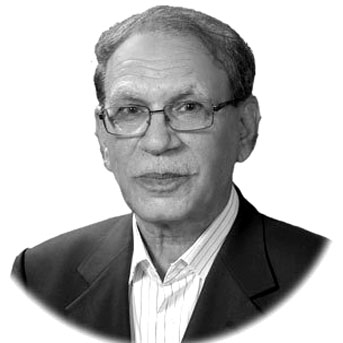Mohammad Jamil
IN A debate in the United Nations General Assembly with regard to UNSC reforms, Pakistan has opposed India’s candidacy to the UN Security Council’s permanent and non-permanent membership. On Tuesday, Pakistan’s Permanent Representative in the UN Munir Akram while referring to the Kashmir issue said: “At least one of the G-4 nations does not in our view qualify for membership of the Security Council – permanent or non-permanent. The country was in blatant violation of resolutions of the Security Council”. The G-4 nations comprising Brazil, Germany, India and Japan have been supporting each other’s bid for permanent seats on the Security Council. Anyhow, the things have gone from bad to worse, as tension between India and Pakistan escalated after New Delhi revoked Jammu and Kashmir’s special status on August 5, 2019. Since then Pakistan downgraded diplomatic ties with New Delhi and expelled the Indian High Commissioner.
Last year, G-4 countries showed no flexibility in their campaign for expanding the Security Council by 10 seats, with 6 additional permanent and four non-permanent members. On the other hand, Italy/Pakistan-led “Uniting for Consensus (UfC) group” had said that additional permanent members would not make the Security Council more effective, but rather undermine the democratic principle. In 2015 also, Pakistan had said India does not qualify to become a full member of the United Nations Security Council (UNSC), given its record of violations of UN resolutions, particularly pertaining to Jammu and Kashmir. The then Foreign Office spokesperson Tasnim Aslam had said: “UNSC reforms should make this vital organ for peace and security more democratic, effective and responsive to the aspirations of member states. A reformed UNSC should reflect interests of wider membership of the UN.” Many countries had supported Pakistan’s stance, sans the US and western countries.
During his visit to India, then US President Barack Obama had stated that he supported India’s candidature for a permanent seat in the United Nations Security Council.” Former US President Bush had also expressed similar sentiments, but the US cannot influence majority of the countries to vote for India to make it permanent member of the UNSC. In the past, the US had advocated a “criteria-based approach under which potential members must be supremely well qualified, based on factors such as: economic size, population, military capacity, commitment to democracy and human rights, financial contribution to the UN, contribution to UN peacekeeping and record on counterterrorism and non-proliferation”. The position taken by the US reinforced its desire to see India as permanent member of the UNSC because of her resources and economic growth instead of incorporating the conditions of showing respect for and implementing UNSC resolutions.
It should be remembered that under Hitler, Nazi Germany too had registered unprecedented economic growth within a short span of time, and look where it got it. In fact, with increased production Germany started competing with other industrialized countries and wanted to have lion’s share in the world market. Having that said, Germany, Japan, Brazil and India are lobbying to get permanent membership of the Security Council with veto power. In various meetings, Pakistan had taken the position that non-permanent members’ representation be increased and be given to several other regions, which would help democratize the UN. The world is aware of the fact that Israel and India have ignominious record of showing utter disregard to the UN and its resolutions, apart from gross violations of human rights. Anyhow, Pakistan and other South Asian countries would not feel comfortable to see India as permanent member of the UNSC.
There is a general perception that prospects of world peace could be further obscured if the veto-power was given to the new permanent members of the Security Council, as the misuse of the veto-power in the past by the permanent members was the reason for the Security Council’s inability to maintain international peace. The glaring example was the use of veto-power on various resolutions on Kashmir and Palestine by former Soviet Russia and the US respectively. During the Cold War era, the veto power was used for advancing interests of the super-power to the detriment of a nation like Pakistan. The resolutions passed by the Security Council could not be implemented because the US and western countries were not serious enough, either due to India’s size, market comprising 1.2 billion population, meaning that they gave overriding consideration to economic interests rather than principles.
Therefore, even if the permanent membership of the Security Council is to be increased, no country should be given the veto power. Rather, the existing permanent members should also be stripped off the veto power, which is a symbol of absolutism. In fact, the veto power negates the very concept of democratic approach, and contradicts the principle of equality amongst the members of the United Nations. Earlier, India had claimed having support of 102 countries, which was not true. It, however, found support in European countries like England, France and Germany that had gone out of the way to lobby for India. Russia had also recommended India for permanent membership of the Security Council but without veto-power. The developing countries should take a firm stand that they would not allow the big powers to have their ‘nominees’ in the Security Council.
—The writer is a senior journalist based in Lahore.










